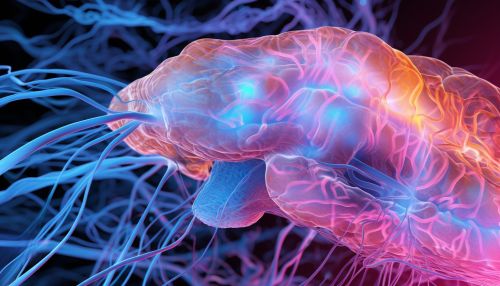Long-term Memory
Overview
Long-term memory (LTM) is a stage of the memory process where information is stored for extended periods of time, ranging from a few minutes to a lifetime. This type of memory differs from short-term memory and working memory, which hold information temporarily for immediate use.


Types of Long-term Memory
Long-term memory can be divided into two main types: explicit (or declarative) memory and implicit (or non-declarative) memory.
Explicit Memory
Explicit memory, also known as declarative memory, involves conscious and intentional recollection of factual information, previous experiences, and concepts. This type of memory can be further divided into two categories: episodic memory and semantic memory.
Episodic Memory
Episodic memory is the memory of autobiographical events that can be explicitly stated or conjured. It involves remembering the 'what', 'where', and 'when' of past events.
Semantic Memory
Semantic memory, on the other hand, is the memory of meanings, understandings, and other concept-based knowledge. It is not tied to personal events, rather it involves the recall of general facts.
Implicit Memory
Implicit memory, also known as non-declarative memory, is the unconscious memory of skills and how to do things. This type of memory is primarily affected by past experiences and can be divided into procedural memory and priming.
Procedural Memory
Procedural memory involves the memory of how to perform different actions and skills. Essentially, it is the memory of how to do things.
Priming
Priming is an implicit memory effect where exposure to a stimulus influences the response to a subsequent stimulus. It is a technique used in cognitive psychology to train a person's memory both in positive and negative ways.
Memory Encoding
Encoding is the crucial first step to creating a new memory. It allows the perceived item of interest to be converted into a construct that can be stored within the brain, and then recalled later from short-term or long-term memory.
Memory Consolidation
Consolidation is a neurological process that involves gradually converting information from short-term memory into long-term memory. This process occurs through the strengthening of the synaptic connections between neurons.
Memory Recall
Recall is the retrieval of events or information from the past. Along with encoding and storage, it is one of the three core processes of memory.
Memory and Sleep
Research has indicated a significant relationship between sleep and memory. Sleep plays a crucial role in the consolidation of memory, which is essential for learning new information.
Memory Disorders
There are several disorders that affect memory, including Alzheimer's disease, amnesia, and dementia. These disorders can have a significant impact on a person's quality of life and ability to function independently.
